A joint venture was launched in July 2014 by several of Alberta’s Metis Settlement communities and Active Energy Group Plc, an international timber products firm listed on the London Stock Exchange. It is being touted as a “template” that could help create economic independence throughout Canada’s Indigenous communities through commercialization of forestry assets. The establishment of the joint venture came after more than half a decade of interaction, negotiation and planning. Joint venture members and others gathered together in Edmonton’s Oasis Centre on January 27 to celebrate the recently formed KAQUO Forestry & Natural Resources Development Corporation (KAQUO FNRDC) and to participate in the company’s inaugural KAQUO Métis Settlements Economic Development Summit. (In the Cree language, KAQUO means ‘all of us’).
The corporation was formed to commercialize the natural resources on the Métis lands “in an equitable, environmentally responsible and culturally sensitive manner, and to encourage long-term sustainable economic development and employment within the Métis communities.”
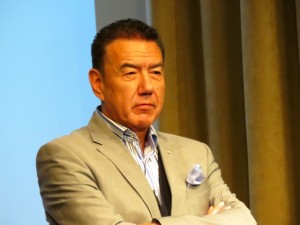
Tom Jackson hosted the KAQUO Metis Settlements Economic Summit last month; Article and photos by John Copley
KAQUO’s first project is to commercialize the 250,000 hectares of forestry assets on the Métis Settlements, which it estimates contain some 35 million m3 of merchantable timber. The company is working with international investors on a number of innovative commercial schemes “to monetize this valuable resource for the benefit of the local communities, while simultaneously improving infrastructure, education, healthcare and community facilities.”
The Summit, entitled “Working Together to Better Our Communities” united key decision makers and stakeholders from around the globe “to promote long-term sustainable economic development on Métis Settlements and other Aboriginal lands in an equitable, environmentally responsible and culturally sensitive manner.”
Attendees included leaders and members of the Alberta Métis communities, guests from other Métis, First Nations and Canadian Aboriginal groups, Alberta government representatives, and senior international executives from Active Energy Group. The event was hosted by revered First Nation actor, musician. comedian and humanitarian, Tom Jackson, creator of the popular annual series of Huron Carole Christmas concerts and an Officer of the Order of Canada.
Richard Spinks, President and CEO of the KAQUO FNRDC and CEO of Active Energy Group Plc’s Commercial division, is also a polished speaker and presenter with a flair for business and a track record of creating prosperity. Introduced as the Summit’s first keynote speaker, Iner Gauthier, Chairman of the Peavine Métis Settlement, referred to Spinks, as “a phenomenal gentleman” who has “worked wonders all over the world on our behalf, raising money and running our business, trying to get it off the ground.”
Active Energy is involved in two main businesses, power generation (Biomass Wood Chip for BFE Power Generation) and collecting and shipping both hardwood chips and softwood that is shipped to Turkey to supply the MDF (Medium Density Fibreboard) industry.
“We are now the largest supplier,” added Spinks, who noted that none of the wood being used in any of the projects is useable saw wood, but instead wood chips and the leftovers after the good trees have been harvested. Active Energy, he said “doesn’t trade, we manufacture, we use our wood chips.”
Utilizing its own technology, the company also produces fuel from saw dust and logging waste. In 2013 Active Energy produced 67,000 tons of chips , a figure that rose to 280,000 tons a year later; 2015 is expected to see the company produce in excess of 700,000 tons.
The one-day Summit heard from a number of participants, including the Chairman of the KAQUO Corporation, Grand Chief Ronald Derrickson, leader of B.C.’s Westbank First Nation and the Chairs of the three Métis Settlement communities that have committed to the joint venture to date, Iner Gauthier (Peavine Métis Settlement), Greg Calliou (Paddle Prairie Métis Settlement) and Gerald Cunningham (East Prairie Métis Settlement.
During a brief introduction Iner Gauthier told the gathering that the work about to be undertaken has already achieved success in other parts of the world.
“What we are doing here to get on our feet isn’t new,” he assured. “It might be new here in our world in Canada but it isn’t new in European countries; they’ve done a lot. The template is already set and we’re reliving what they have done.”
Richard Spinks began his oration by assuring the gathering that the newly formed company is a business that will create opportunity and provide a platform that will eventually allow Aboriginal communities to achieve economic self-sufficiency. He explained how he became involved with the Métis in Alberta and how he met Grand Chief Ronald Derrickson, one of the initiative’s key proponents and the man behind bringing the initiative to Canada. The latter contacted Spinks after reading an article in the Wall Street Journal lauding the difference the Active Energy Group had made in the western Ukraine, particularly “from the social perspective and the re-construction of the economic situation in western Ukraine.”
Spinks said the first hectare of land and the first project of this kind that he was involved in was in the Ukraine. The area, he said “was fairly remote, had huge unemployment, alcoholism (and they) were disenfranchised by the central government in Kiev; there was no welfare at all. They (Kiev) taxed the landowner but wouldn’t give them any assistance to use the land that was being taxed.”
Three years later he said the unemployment had gone from 96 percent to zero, alcoholism had disappeared, crediting the community of the more than 2,800 residents for taking advantage of the opportunities that opened up for them. He said that Aboriginal Canadians can do the same thing by working together to ensure that the community, not outside industries, are the ones to profit from their forest resources.
Emphasizing the potential economic opportunity that this new venture could create for the partnership Spinks pointed out Active Energy’s revenues via wood chip sales “started with zero in 2012, we sold $8.4 million worth in 2013, $21.5 in 2014 (and that could be higher because the final figures haven’t been released yet) and this year the target we’d at least like to achieve is $61.5 million.”
The Keynote Speaker at the Summit was West Bank, B.C. Grand Chief Ronald Derrickson. Well known as an advocate for Aboriginal rights who had many encounters with the federal government, Derrickson said that Ottawa “spent $10 million with a Royal Commission of Inquiry to try and get the dirt on me because I was fighting them for our rights, not my rights, our rights.”
He said his books were confiscated and he was left to run his business for ten months without them.
“Life,” he assured, “has not been without trials for me but one thing I never lost was my pride, my desire to be an Okanagan Indian.”
His experiences with a government that he says continually undermines Aboriginal people while eroding their rights has only furthered his resolve to “respect and help Native people all across Canada.”
Derrickson told the gathering that he’s been quite successful over the years and has “made a lot of money,” but is saddened by what he sees throughout “almost every Indian reserve” he’s been to in Canada – “jealousy, envy, fear – fear to change. Government at every level wants dissension in the reserves. Chief Seattle used to say ‘take up one stick and you easily break it, you take all the sticks and put them together and none can break it.’ Overcome your differences in your communities; come together for business – which means economic well-being. You can’t have a culture without economic well-being. You can’t feel grace without getting rid of the hatred, fear and envy. You can’t celebrate life without getting rid of all our weaknesses.”
He told the Summit that “there is $300 million (to be made) in the first year alone that’s available for all eight Métis communities – and other tribes. We don’t limit this to just the eight Metis Settlements; we want the eight Settlements to be the catalyst, the example for every tribe, band, treaty, nation in Canada and the United States. We want the Métis to say to their brothers, ‘okay this is what we’ve done; we can come and help you do it’.
Iner Gauthier addressed the nearly 300 in attendance by telling them that this Summit came together in about two weeks. He thanked Tom Jackson for coming on such short notice, saying that the popular entertainer “just saw the agenda this morning.”
Gauthier talked about bis own business experience, which began at an early age with his dad as a logger. He said that when he won the election in 1999 he didn’t expect to win, but when he did he said: “I was the saddest man in the Settlement because I knew what the fights were to get on our feet.”
Once elected he scoured the Métis Settlements Act to see what he could do to improve their lot. He eventually, with support of his peers and members, initiated the creation of an oil company and said it wasn’t long before government stepped in to investigate.
“I didn’t think it was right but I said fine, let’s open the books. We literally lost $1.2 billion because of that investigation. I was in the middle of negotiating a deal with a company off the Settlement; after all was said and done we got a clean bill of health. We hadn’t done anything wrong but we paid a price and that had to stop. So I sued the province for $50 million and what do they immediately do? They changed their legislation on us. Instead of elections every two years for two people they made it an election every three years for five people. I ran again and won again, but that’s the government, that’s what they do. The bottom line is we always have to bond together to become stronger; we need to unite. Three of us Settlements are now united and we’d like the rest to unite with us as well.”
Peavine got right into the oil and gas business, made deals, struck up partnerships and built their own facilities. The community made more than $100 million, “the bulk of that was off the Settlement. I hold this dearly in my heart for all of us. They built an area, a school, arenas, even facilities outside the community.”
“We’re being taken over by government control; what can we do?” he asked, noting that Ron Derrickson is willing to supply the training and the financing to help get the venture off the ground. The money and the expertise coming from Derrickson and the Active Energy group is available, “but it’s what we want to do that matters. We’re looking at oil and gas (which Peavine has much of) and we’re looking at forestry; we have our wish list.”
Encouraging unity, Gauthier reiterated the chaos and calamity that often arises when government is involved, saying “we need to change that but we could do it as a nation, as a united group, because as individuals it’s much like banging your head into a brick wall.”
Paddle Prairie Métis Settlement Chairman Greg Calliou echoed Gauthier’s statements about working in unity and not allowing outside interests to come in and take the majority of the resources without leaving the community financially stable. He encouraged others to get on board and to inspire others to utilize KAQUO FNRDC rather than outside interests who only “want to pay a fraction” of what we can by using our own (sweat equity). We have the support of our council; we have the support of our people and we have some good legal people in place.”
Gerald Cunningham, Chairman of the East Prairie Metis Settlement described the background and history of the Métis Settlements and the various acts and transfers that created them. He spoke about the intent and about the money that was paid out with an expectation that the Settlements would be self-sufficient by 2007.
“Though we have made good progress, to date we haven’t quite realized those goals yet; for the most part the Settlements still rely a lot on government funding. In order for us to change that, we have to start doing this for ourselves. We have to take responsibility for our future and we have to be willing to do whatever it takes to make progress happen. We need to look at education and training and economic development. It’s time that Aboriginal people get together to establish partnerships and capitalize on opportunities, whether they are local, provincial or national. That’s what we, along with our partnering Metis Settlements, are doing.
“We recognize the potential of the journey before us and are willing to accept the few small risks associated with it because the risk of doing nothing is much greater. We must form a sustainable development plan for our lands and for our communities. Life is short and opportunities are few so we have to make the most of this opportunity presented to us. By working together we can go far and bring strength and unity to all Aboriginal people in our region and across Canada.”
by John Copley

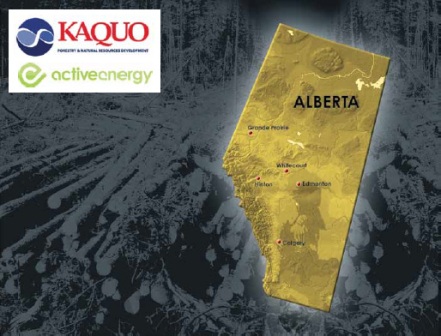
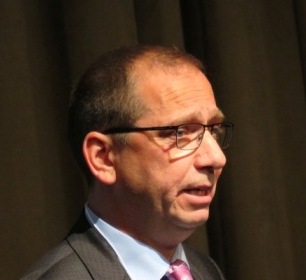
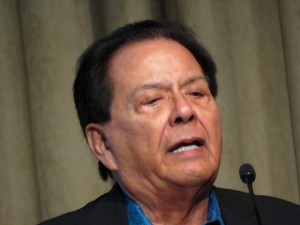
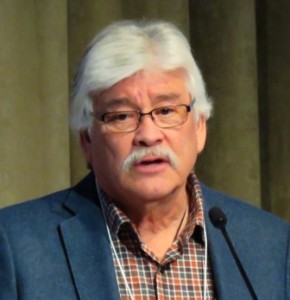
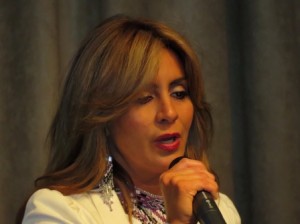
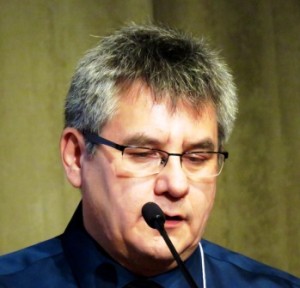
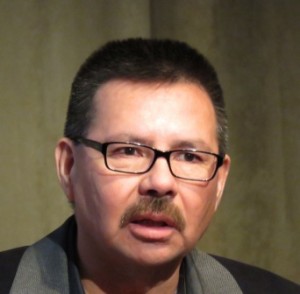
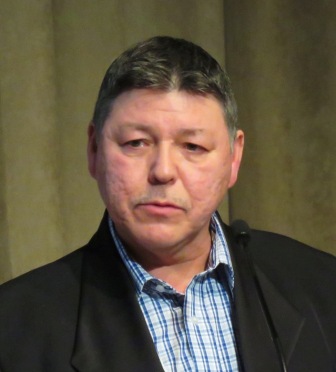

Be the first to comment on "Three Métis Settlements launch new groundbreaking joint venture"